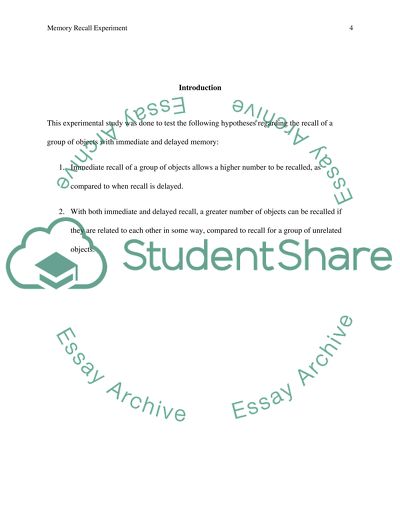Cite this document
(“Memory Recall Experiment Research Paper Example | Topics and Well Written Essays - 1000 words”, n.d.)
Memory Recall Experiment Research Paper Example | Topics and Well Written Essays - 1000 words. Retrieved from https://studentshare.org/psychology/1438785-hypothetical-experiment
Memory Recall Experiment Research Paper Example | Topics and Well Written Essays - 1000 words. Retrieved from https://studentshare.org/psychology/1438785-hypothetical-experiment
(Memory Recall Experiment Research Paper Example | Topics and Well Written Essays - 1000 Words)
Memory Recall Experiment Research Paper Example | Topics and Well Written Essays - 1000 Words. https://studentshare.org/psychology/1438785-hypothetical-experiment.
Memory Recall Experiment Research Paper Example | Topics and Well Written Essays - 1000 Words. https://studentshare.org/psychology/1438785-hypothetical-experiment.
“Memory Recall Experiment Research Paper Example | Topics and Well Written Essays - 1000 Words”, n.d. https://studentshare.org/psychology/1438785-hypothetical-experiment.


